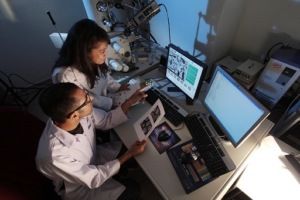News
Research work frequently ‘sexed up’ by civil servants, survey reveals
This article is more than 7 years old.
Ministries and other government bodies have been tampering with research results to fit their own agendas

If results are tampered with for political ends, public confidence in research will be eroded (photo: pixabay/felixioncool)
When research work is carried out for government ministries and other agencies, the results are supposed to reflect the impartiality of the researchers.
However, a wide-ranging survey conducted by Politiken Research indicates otherwise.
Around 1,200 researchers who do government work were part of the survey and 92 of them – around 8 percent – said their results had been altered in the final report. This included things such as important graphs, figures or conclusions being left out, reports Politiken.
A larger percentage – 13 percent – said they had experienced one or more times that the research project parameters were skewed in such a way that it was only possible to reach the politically desirable conclusion.
A hot topic
The subject has been in the news recently since Berlingske revealed that researchers at Aarhus University were pressurised when they were due to deliver a report on nitrates in agriculture to the Environment and Food Ministry.
One of the questions in Politiken’s survey specifically asked: “Have you, in connection with research in a politically sensitive area, experienced pressure from a political actor (eg a ministry, agency, political party, special interest organisation)?”
Rasmus Willig, an associate professor of sociology at Roskilde University, has as his special interest area the freedom of expression of public employees.
“No researchers should be able to answer ‘yes’ to this question. Changing important information is pure censorship and it is also against the Danish Constitution, so this really is a matter of principle,” said Willig.
“In the final analysis, everyone loses if doubt can be cast on the quality of the research because it is vital for the public debate and to make rational decisions in the political system.”
Speak up
Søren Pind, the minister for education and research, would like to see researchers speak out in such cases.
“We need people to come forward publicly with this kind of thing if we are to do better,” said Pind.






































